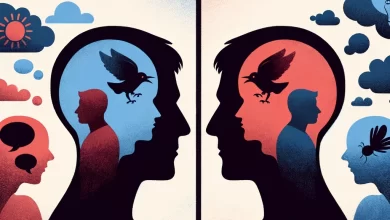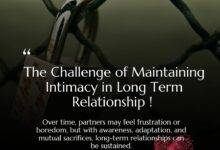Loss of Sex Drive: Understanding and Overcoming the Silent Battle

A happy relationship often comes with a great sex life. But sometimes, a drop in libido happens. This can deeply affect intimacy, sexual health, and emotional well-being. Suddenly, the issue of low libido isn’t just about what happens in the bedroom. It touches every part of relationships and self-esteem. In this article, we’ll talk about the silent battle against libido loss and how it ties sex drive to our feelings.
Finding a way through this difficult situation isn’t only about having sex more often. It’s about understanding, showing empathy, and open communication. We’re here to find strategies not just for coping with libido loss but for bringing back the warmth of intimacy. Our goal is to help you and your partner find your way back to both emotional and sexual well-being.
Understanding Libido: Unpacking the Basics
Libido is key when we talk about human sexuality. It’s also known as sexual desire. It shows how much someone wants to engage in sexual activities. A strong libido usually means good health, both in body and mind. Still, it’s important to understand that everyone’s sexual desire is different. It changes over their lifetime.
A lot goes into shaping a person’s libido. It’s about biology, psychology, and social factors. Hormones like testosterone and estrogen are crucial. They can change how much sexual desire someone has. Mental health and emotions play a big role, too. They can increase or decrease desire for sex.
Relationships also have a big impact on how much someone wants sex. Talking openly with partners about sexual needs is key. Libido connects to many parts of our lives. This includes our body’s hormone system and our feelings. To enjoy a healthy sex life, it’s vital to understand these factors.
Learning about libido is more than just about sex. It helps us know ourselves better and improves our relationships. It starts important discussions about human sexuality. Understanding what increases or decreases our sexual desire is something we do together and alone.
The Impact of Medication on Libido
When desire fades, we should look at the medication involved. Selective Serotonin Reuptake Inhibitors (SSRIs) treat depression and anxiety. But they often reduce libido and cause sexual dysfunction. It’s key for patients and doctors to understand this link.
SSRI and Sexual Dysfunction: The Hard Facts
SSRIs are widely used but come with sexual side effects. These include lower sex drive, difficulty orgasming, and erectile dysfunction. This shows the complex effect SSRIs have on sexual health. They make us think about how some medicines affect intimacy.
Coping with the Side Effects: Strategies and Timelines
Dealing with these side effects means talking openly with your doctor. Finding new treatments or changing how you manage side effects can help a lot. How long it takes to adjust or get better varies, showing the need for care plans made just for you.
| Side Effect | Management Strategy | Expected Timeline |
|---|---|---|
| Decreased Libido | Dose adjustment, scheduling intimacy, mindfulness techniques | 1-3 months |
| Erectile Dysfunction | Alternative medications, vacuum devices, lifestyle changes | 1-6 months |
| Anorgasmia | Sex therapy, pharmaceutical options (e.g., Viagra) | Varies; dependent on individual response |
These strategies aren’t a cure-all, but they offer hope and guidance. The balance between medication and sexual health is sensitive. Yet, with the right knowledge and support, people can take back control of their sexual well-being.
Embracing Intimacy Beyond the Physical
Intimacy is often mistaken as just being physical or about sex. Yet, for deep and lasting relationships, we must think beyond. Non-sexual intimacy involves connecting emotionally without a sexual aspect. This kind of closeness boosts satisfaction in relationships. It’s crucial for couples facing Loss of Sex Drive or those wanting to deepen their connection outside the bedroom.
Finding the beauty in intimacy that doesn’t rely on being physical is profound. Heartfelt chats into the night, silent understanding, and laughter together build an emotional connection. This connection becomes the foundation of the relationship. Couples find new layers in their partnership through non-physical activities that bring them closer. This process changes our view of intimacy, showing its complex nature.
Remember that a gentle touch, a knowing glance, or an act of kindness can be just as intimate as any physical interaction. Embrace the breadth of shared human experiences to foster intimacy within your relationship.
Activities like cooking together, walking, or doing art or intellectual things side by side add to non-sexual intimacy. They lead to a deeper understanding and appreciation between partners. Expressing love and commitment comes in many forms. By actively listening and showing real interest in your partner’s lives, you support this emotional connection. Such simple, loving actions strengthen the bond between partners.
Communication: The Bedrock of Navigating Libido Changes
When libido changes, communication is key in relationships. It’s vital to talk about libido changes openly and with care. This builds understanding and helps couples face changes together. Discussing libido loss means showing support and being there for each other.
Discussing Libido Loss with Your Partner
Talking about Loss of Sex Drive takes bravery. It’s important to have honest talks, listen well, and not judge. Experts say sharing feelings freely, without fear, is crucial. The timing and way you talk can really make a difference.
Therapy and Support: Talking It Out
Getting therapy and support can help a lot with libido issues. Therapists help explore tough topics. They create a safe space that helps heal and rebuild intimacy in new ways.
Sex, Love, and All of the Above: Mourning the Loss of My Sex Drive
The journey of mourning the loss of sex drive is private and deeply personal. It mixes with the threads of love and closeness. Loving someone deeply usually means connecting physically. But when someone can’t feel that connection, the emotional impact hits hard. It’s not just about losing physical joy; it touches how we see ourselves, our appeal, and our energy.
For many, blending sex and love is when they feel most vibrant. But, this blend can get cloudy without desire, leading to a deep sense of loss. Mourning the loss of sex drive also brings the fear of losing your partner. Or losing the deep bond that seemed central to your relationship. Thus, handling this topic with care and love is crucial and healing.
“Redefining our sexuality in the absence of a strong sex drive is not about filling a void with a like-for-like substitution; it’s about carving out a new path for intimacy and personal expression.”
In the journey of redefining sexuality, many discover new ways of pleasure and closeness. This exploration often needs guidance, patience, and openness to new forms of sensuality and connection. Talking openly, seeking therapy, and focusing on self-care are key steps. Let’s see how some have navigated this journey. They’ve found a renewed, meaningful sexuality—beyond just the act of sex.
| Emotional Impact | Strategies for Redefining Sexuality |
|---|---|
| Decreased Self-Esteem | Engaging in affirmational self-talk and therapy |
| Fear of Relationship Loss | Developing deep emotional bonds through non-sexual intimacy |
| Altered Self-Perception | Celebrating the body through artistic or physical activities |
| Yearning for Intimacy | Exploring mental and spiritual connections |
| Feelings of Isolation | Building a supportive community understanding of libido changes |
Alternative Ways to Connect When Sex Isn’t on the Table
We are exploring how to keep a deep emotional connection without sex. We will look at many ways to build intimacy that doesn’t involve physical contact. Let’s talk about the value of being close in other ways and the fun activities that can make the bond between partners stronger.
Non-Sexual Intimacy and Its Importance
When sex isn’t the main way to be close, non-sexual intimacy becomes very important. It lays the foundation for a strong emotional tie. It makes the relationship satisfying and helps partners understand each other deeply. By sharing experiences and having heartfelt talks, couples find other ways to be close. This strengthens their connection.
Creative Activities to Foster Closeness
Creative activities are a great way to get closer and show love in different ways. They help partners find new and fun ways to celebrate their relationship. Working on a project together, enjoying hobbies, or finding happiness in everyday things can create memories. These memories and emotional ties are just as strong as those from physical intimacy.

| Activity | Description | Benefits |
|---|---|---|
| Cooking Together | Preparing a meal together, experimenting with new recipes. | Encourages teamwork and the joy of shared achievement. |
| Artistic Collaboration | Painting, drawing, or sculpting projects that reflect mutual interests. | Stimulates creative expression and mutual appreciation. |
| Book Club for Two | Reading the same book and discussing insights and themes. | Promotes intellectual engagement and perspective sharing. |
| Nature Walks | Regular walks in natural settings, observing the environment together. | Fosters relaxation and reconnection with nature and each other. |
| Game Nights | Board games or puzzles that require strategic thinking and collaboration. | Builds a sense of fun and lighthearted competition. |
Pleasure Is Multifaceted: Discovering New Avenues
When we think of pleasure, we often focus on physical intimacy. But pleasure goes way beyond just the bedroom. It’s about experiencing a variety of things that improve how we feel and connect with our partners. By exploring these different aspects, couples can find new ways to appreciate each other. This is what redefining pleasure is all about.
Redefining Pleasure in Your Relationship
Looking for pleasure is about finding new things to enjoy. It’s about seeing pleasure in different ways. This could mean enjoying a quiet sunset together or feeling excited by a simple touch. Redefining pleasure helps strengthen the bond in a relationship. It makes it more fulfilling.
The Role of Sensuality in Emotional Well-Being
Sensuality is key to feeling good. It’s about enjoying things that make our senses happy. This can be a gentle touch or the comfort of being close to someone. Enjoying these sensory experiences can make us feel happier. They help deepen our connections in a special way.
| Traditional Views of Pleasure | Redefining Pleasure |
|---|---|
| Physical intimacy central to pleasure | Embracing emotional and spiritual intimacy |
| Sexual fulfillment as a goal | Continuous journey towards mutual contentment |
| Partner’s satisfaction as a performance metric | Shared experiences as a measure of success |
In today’s relationships, sensuality and all forms of pleasure are key. They make us feel complete. Adopting a wider view of pleasure strengthens our relationships. It makes us happier and creates a special space of shared experiences.
Resetting the Sexual Dynamic: Advice from Experts
Keeping a satisfying sexual relationship requires understanding and balancing libido differences. Experts say the key is to reset the sexual dynamic with care. This approach honors both partners’ needs and emphasizes compassion and willingness to explore together.
Balancing Libido Differences in a Relationship
Each relationship faces unique challenges, including balancing different libidos. This difference can cause tension. Yet, with the right approach, couples can achieve a satisfying sexual balance.
| Partners with Higher Libido | Partners with Lower Libido | Solutions |
|---|---|---|
| Express desires openly, without pressure. | Communicate personal comfort levels. | Establish a ‘maybe’ zone for conditional agreement. |
| Practice patience and empathy. | Seek understanding without feeling pressured to change. | Cultivate non-sexual intimacy practices. |
| Explore individual satisfaction methods. | Participate in ways that feel comfortable. | Engage in mutual exploration of desires and boundaries. |
Introducing Novelty and Exploration
Over time, a relationship’s excitement might fade. But adding newness can reignite the sexual spark. Exploring new activities, toys, or fantasies can revive energy and interest.
In conclusion, introducing novelty, encouraging exploration, and focusing on balancing libido differences help partners. They can reset their sexual dynamic, strengthening their bond.
The Long Road to Reclaiming Your Sexuality
Taking steps on the journey to rediscovery can be both challenging and rewarding. It’s about reclaiming sexuality, a critical part of who you are that may have been lost. This journey is not just about going back. It’s a chance for personal growth and better self-understanding. Let’s explore this path together, helping you find the spark again.

This journey calls for a lot of self-love. Dealing with our physical and emotional needs means celebrating every progress. Reclaiming sexuality teaches us and helps us grow, leading to a stronger self.
Self-care is very important too. It’s about taking care of your body, feelings, and spirit. Doing this helps heal and brings back the happiness of being in tune with your sexuality. This turns the journey to rediscovery into a world of new chances.
“As one delves into the depths of their being, they emerge with treasures of understanding and acceptance, a testament to the beauty of personal growth.”
Here’s a table with steps to help you on your way back to enjoying your sexuality. Every step aims to create a space for rediscovery and growth, keeping in mind that everyone’s journey is different.
| Stage | Focus | Action |
|---|---|---|
| Awareness | Understanding Loss | Reflect on feelings and experiences related to libido loss. |
| Acceptance | Fostering Self-Compassion | Acknowledge the change without self-judgment. |
| Exploration | Seeking Alternatives | Research and experiment with new forms of pleasure. |
| Connection | Building Intimacy | Cultivate emotional and physical connections with oneself or partner. |
| Resilience | Embracing Setbacks | View challenges as opportunities for learning and growth. |
We hope to inspire and support those on this life-changing journey. May hope guide you to embrace and celebrate your sexuality, openly and fully.
Conclusion
As we wrap up our journey, it’s crucial to see sexual well-being from all angles. This article highlighted how changes in libido affect not just our sex lives. They touch every part of how we connect with others emotionally.
Being open and understanding is key to overcoming these challenges. Creating a space where both partners feel safe to talk can help. It leads to a stronger bond and a richer intimate life. Finding joy in new aspects of pleasure can enhance our relationships in exciting ways.
We now know that Loss of Sex Drive is something many of us will face. But this knowledge comes with a silver lining. It’s an opportunity for growth and deeper connections. Let’s remember that understanding and compassion towards ourselves and our partners are vital.
As we end, let’s take with us the idea that passion can be found in many forms. Even when our desires change, there are always ways to reignite the spark. This can bring more joy into our lives and relationships.






